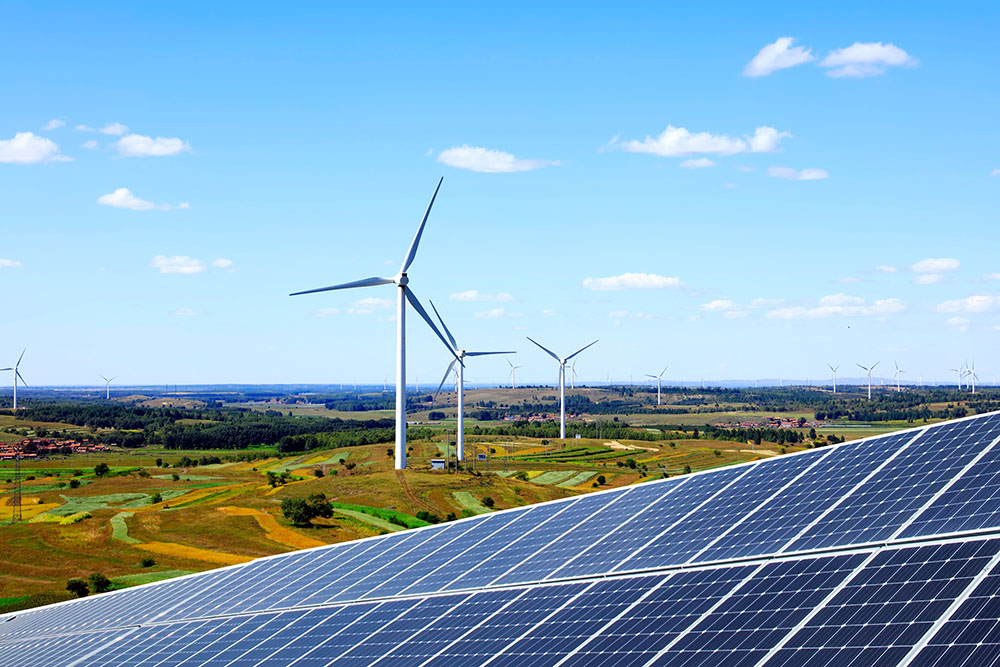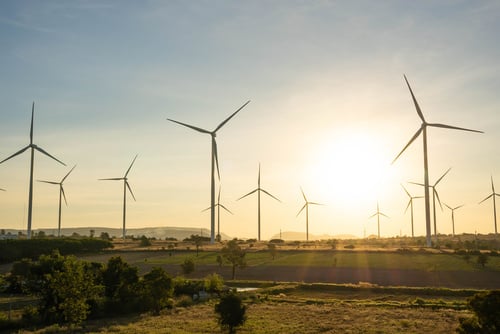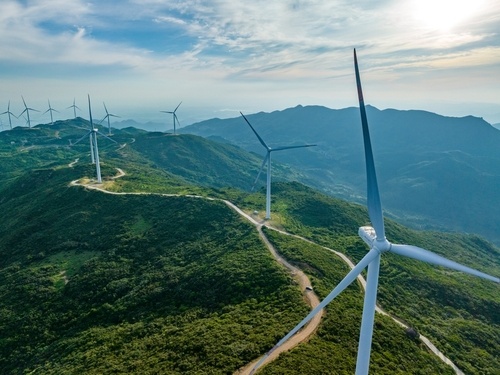Our handy jargon buster cuts through the complexity and provides simple, straightforward explanations of key buzzwords and phrases businesses need to know.
Click the blue letters to jump to the different sections in the directory.
A B C D E F G H I J K L M N O P Q R S T U V W X Y Z #
A
Adaptation
Adaptation is essentially adjusting to a changing climate where action is taken to prepare for the possible risks associated with global warming.
C
Carbon
Carbon is a chemical element ‘C’ and is used as an abbreviation for carbon dioxide.
Carbon footprint
The amount of carbon dioxide emissions generated from a particular individual, community, or organisation.
Carbon neutral
Carbon neutral is where there is no net emissions of carbon dioxide into the atmosphere as the amount emitted is balanced by the amount absorbed.
Carbon offsetting
An activity or scheme that removes the equivalent amount of carbon dioxide that you have released
Carbon reduction plan (CRP)
A CRP details an organisations carbon footprint and demonstrates their commitment to achieving Net Zero emissions by 2050.
Carbon sequestration
The process of capturing carbon dioxide from the atmosphere and storing it long-term.
Carbon Insetting
A carbon reduction project within a company’s value chain.
Carbon Disclosure Project
A non-profit organisation that assists companies or cities in measuring and managing their environmental impacts.
Carbon tax
A price imposed on the carbon emissions generated from fossil fuel combustion.
Climate change act
The act in which the UK government has committed to a 100% reduction in greenhouse gas emissions by 2050
Climate change agreement
A voluntary agreement in which industries commit to energy efficiency targets and in return receive a reduced rate of the climate change levy.
Climate change levy
An environmental tax applied to energy used by businesses
Climate change
Long-term modifications in global, or regional, average temperatures and weather patterns. These shifts can be both natural and anthropogenic.
Corporate Power Purchase Agreement
A long-term contract between two parties, where one generates electricity and the other, commonly a business or company, agrees to purchase the power and carbon credits from them.
COP
The conference of parties is the major decision-making body of the United Nations Framework Convention on Climate Change (UNFCC) that meet each year to monitor and review climate change action.
Carbon credits
A tradable certificate or permit which allows the holder to emit a certain amount of greenhouse gas.
CCUS
Carbon Capture, Utilisation and Storage is the process of capturing CO2 before it enters the atmosphere and either reusing or storing it.
D
Decarbonisation
The reduction, or complete removal, of carbon dioxide emissions into the atmosphere.
E
Energy Savings Opportunity Scheme (ESOS)
A mandatory scheme introduced by the UK government where large organisations must complete energy audits every 4 years and identify energy efficiency opportunities.
Environmental product declarations (EDP's)
Environmental product declarations are standardised documents that quantify the environmental impacts of products and services to allow informed comparisons.
G
Greenhouse gases
Gases that trap heat within the Earth’s atmosphere by absorbing infrared radiation.
Greenhouse gas protocol
Supplies a global standardised framework for accounting and reporting greenhouse gases.
Greenwashing
A marketing strategy in which organisations provide misleading information regarding their environmental impact.
K
Kyoto Protocol
An international agreement in which developed countries are committed to legally binding targets to reduce their greenhouse gas emissions.
L
Life cycle assessments (LCA's)
Life Cycle Assessments analyse the environmental impacts related to a product or service throughout their life cycles.
M
Mitigation
Mitigation involves the reduction of greenhouse gas emissions entering the atmosphere to lower the severity of climate change impacts.
N
Net Zero
Net Zero is where the total of greenhouse gases emitted into the atmosphere is balanced out by the amount removed.
P
Paris agreement
An international treaty that addresses climate change and aims to limit global warming to well below 2°C.
Power purchase agreement
An agreement to purchase exported power from a generator for an agreed rate.
PPN 06/21
Procurement Policy Note 06/21 requires every entity bidding for UK Government contracts valued at £5 million or more, is required to have a Carbon Reduction Plan.
R
Race to zero
A global campaign led by the United Nations calling for cities, companies, and other institutions to take immediate action against climate change and reach Net Zero emissions by 2050.
Renewable energy
Energy produced from a renewable source.
Renewable resources
An energy source that is naturally replenished over time and can supply clean energy.
S
Science-based targets
A carbon emissions target that is based on global carbon targets and the Paris Agreement.
Scope 1 emissions
Direct emissions of greenhouse gases from assets operated or owned by an organisation, such as fuel from company owned transport and gas used for heating.
Scope 2 emissions
Indirect emissions of greenhouse gases linked to the purchase of energy.
Scope 3 emissions
All other indirect emissions of greenhouse gases that result from the operations of an organisation.
SECR
Streamlined energy carbon reporting (SECR) is a legislation that has made reporting energy and carbon data mandatory for large businesses.
Supply chain
The entire process of producing and delivering a good or service.
Sustainability
The responsible use of natural resources to ensure they can provide for both present and future generations.
#
1.5°C
A 1.5 degree limit to global warming is a critical climate target and was the central goal for COP26.







